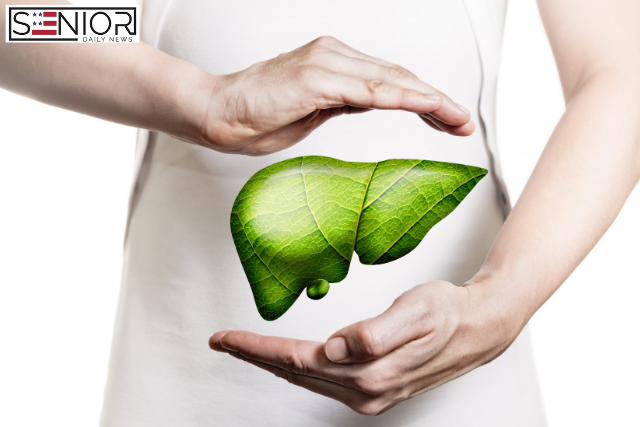Liver Health: Keeping Your Liver Healthy as You Age

Your liver is one of the hardest-working organs in your body. It filters toxins from your blood, aids digestion, stores nutrients, and helps regulate your metabolism. But like any hardworking machine, it needs a little care and maintenance—especially as we age.
In your golden years, paying attention to liver health becomes more important than ever. Aging can affect how your liver functions, making it more susceptible to damage from lifestyle, medications, and chronic conditions. But don’t worry—with a few mindful habits, you can support your liver and keep it functioning well into your senior years.
Why Liver Health Matters More with Age
As we age, our bodies go through a variety of changes, and the liver is no exception. Here are a few reasons why liver health should be a priority for seniors:
- Slower Regeneration: The liver has an amazing ability to regenerate, but this function slows down with age.
- Increased Medication Use: Seniors are more likely to take multiple medications, which can tax the liver.
- Chronic Conditions: Conditions like diabetes, high blood pressure, and high cholesterol—more common in older adults—can negatively impact liver health.
- Reduced Blood Flow: Aging can decrease blood flow to the liver, impacting its ability to perform optimally.
Common Liver Issues in Older Adults
Some liver conditions become more prevalent or impactful as we get older:
- Non-Alcoholic Fatty Liver Disease (NAFLD): A condition where fat builds up in the liver. It’s especially common in people with obesity, type 2 diabetes, or high cholesterol.
- Hepatitis C: This viral infection can go unnoticed for years and cause long-term liver damage if untreated.
- Cirrhosis: Often a result of chronic liver disease, cirrhosis is a condition where liver tissue becomes scarred and can’t function properly.
- Drug-Induced Liver Injury: Older adults are at higher risk due to polypharmacy (taking multiple medications).
Signs Your Liver May Need Attention
Your liver won’t always complain loudly, but it does send out signals when something’s not right. Look out for:
- Fatigue and weakness
- Jaundice (yellowing of the skin or eyes)
- Abdominal pain or swelling
- Dark urine or pale stool
- Itchy skin
- Loss of appetite
If you notice any of these symptoms, speak with your healthcare provider. Early detection is key to managing liver issues effectively.
Healthy Habits to Support Liver Function
Taking care of your liver doesn’t require drastic changes. Here are simple, senior-friendly strategies to keep your liver in tip-top shape:
1. Eat a Liver-Friendly Diet
Your diet plays a significant role in liver health. Focus on:
- Fruits and Vegetables: Aim for a colorful variety rich in antioxidants.
- Whole Grains: Brown rice, oatmeal, and whole wheat bread support healthy digestion.
- Lean Proteins: Choose fish, poultry, beans, and legumes.
- Healthy Fats: Include nuts, seeds, olive oil, and avocados in moderation.
- Limit Sugar and Salt: Too much sugar and salt can strain the liver.
Avoid processed foods, trans fats, and excessive saturated fats, all of which can contribute to fat buildup in the liver.
2. Stay Hydrated
Water helps flush toxins from your body and keeps your liver working efficiently. Aim for 6 to 8 glasses of water a day unless your doctor advises otherwise.
3. Stay Physically Active
Exercise improves blood flow and helps maintain a healthy weight—both essential for liver health. Even gentle activities like walking, swimming, or stretching can make a big difference.
4. Manage Your Medications Carefully
Review your medications regularly with your doctor or pharmacist. Some over-the-counter and prescription drugs can be hard on the liver, especially when taken in combination.
Always follow dosing instructions and avoid mixing medications with alcohol.
5. Limit Alcohol Intake
The liver processes alcohol, and excessive intake can lead to liver damage over time. Seniors should aim to drink less or not at all. If you do enjoy a drink occasionally, stick to recommended limits: no more than one drink per day for women and two for men.
6. Avoid Toxins
Household chemicals, pesticides, and cleaning products can harm your liver. Use them in well-ventilated areas, wear gloves, and consider switching to natural alternatives when possible.
7. Get Regular Checkups and Screenings
Routine liver function tests can help catch problems early. If you have risk factors like diabetes, obesity, or a history of hepatitis, talk to your doctor about regular screenings.
Natural Supplements for Liver Support (With Caution)
Some seniors turn to supplements to support liver health. Common options include:
- Milk Thistle: Known for its antioxidant and anti-inflammatory properties.
- Turmeric: May help reduce liver inflammation.
- Dandelion Root: Thought to aid in detoxification.
Important: Always consult with your healthcare provider before adding any supplements. Natural doesn’t always mean safe, especially when combined with prescription drugs.
Lifestyle Choices That Benefit the Liver
- Quit Smoking: Smoking increases oxidative stress on the liver.
- Maintain a Healthy Weight: Obesity is a major risk factor for liver disease.
- Practice Safe Sex and Hygiene: Hepatitis B and C can be spread through body fluids. Vaccination and prevention are key.
- Avoid Sharing Needles: This includes medical, tattoo, and drug-use needles.
The Connection Between Liver Health and Overall Wellness
A healthy liver supports your immune system, regulates blood sugar levels, and keeps your energy up. When your liver is sluggish, you may feel fatigued, have digestive issues, or struggle with your weight.
Maintaining liver health contributes to longevity and quality of life. It helps you stay active, independent, and more resilient to illness.
FAQs About Liver Health for Seniors
Q: How often should I get my liver checked? A: If you’re in good health, your doctor may check your liver as part of your annual physical. If you have risk factors (like diabetes or obesity), more frequent testing might be recommended.
Q: Can the liver heal itself? A: Yes, the liver has regenerative abilities, but this slows with age and depends on the severity of damage. Early lifestyle changes can still make a significant difference.
Q: Is it safe to take liver supplements? A: Some supplements can help, but they may interact with medications. Always check with your doctor first.
Q: Are liver cleanses or detoxes effective? A: Most commercial liver cleanses are unnecessary and sometimes harmful. The best way to “detox” your liver is by eating well, staying hydrated, and avoiding toxins.
Q: What foods are bad for the liver? A: Processed foods, excess sugar, fried foods, and heavy alcohol intake can harm the liver over time.
Image Designed Using Canva






